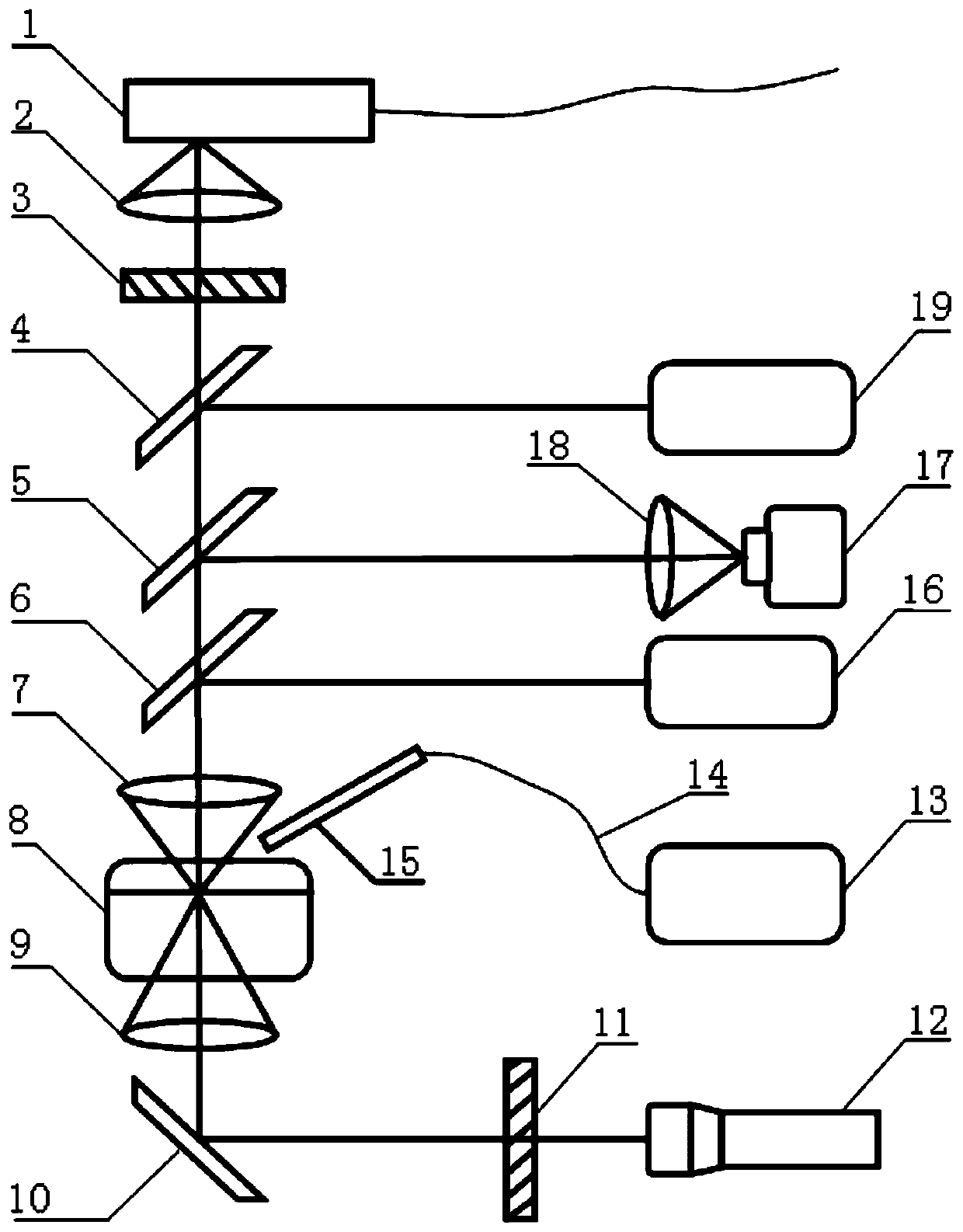Single-particle detection system based on Raman and laser-induced breakdown spectroscopy integration
A laser-induced breakdown and detection system technology, used in Raman scattering, individual particle analysis, particle and sedimentation analysis, etc., can solve the problems of poor repeatability and large differences in spectrogram detection, and achieve no need for sample pretreatment and detection. Fast, simple effects
- Summary
- Abstract
- Description
- Claims
- Application Information
AI Technical Summary
Problems solved by technology
Method used
Image
Examples
Embodiment Construction
[0020] The design idea of the single-particle detection system based on the integration of Raman and laser-induced breakdown spectroscopy proposed by the present invention is that the Raman laser is used to irradiate the surface of a single particle, and the molecules in the substance absorb part of the energy, and vibrations in different ways and degrees occur , which then scatters lower frequency light, which is recorded by a Raman spectrometer. Different types of atomic groups have unique vibration modes and frequencies, so scattered light of specific frequencies can be generated, and according to this principle, the types of molecules that make up the substance can be identified; the single particle to be tested is broken down by a strongly focused nanosecond pulse laser, and a High-temperature, high-density plasma, plasma luminescence is recorded by a high-resolution LIBS spectrometer, and then the plasma emission spectrum is analyzed to determine the material compositio...
PUM
| Property | Measurement | Unit |
|---|---|---|
| wavelength | aaaaa | aaaaa |
| width | aaaaa | aaaaa |
| power | aaaaa | aaaaa |
Abstract
Description
Claims
Application Information
 Login to View More
Login to View More - R&D
- Intellectual Property
- Life Sciences
- Materials
- Tech Scout
- Unparalleled Data Quality
- Higher Quality Content
- 60% Fewer Hallucinations
Browse by: Latest US Patents, China's latest patents, Technical Efficacy Thesaurus, Application Domain, Technology Topic, Popular Technical Reports.
© 2025 PatSnap. All rights reserved.Legal|Privacy policy|Modern Slavery Act Transparency Statement|Sitemap|About US| Contact US: help@patsnap.com

